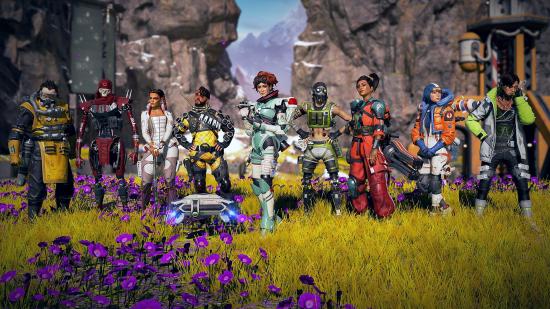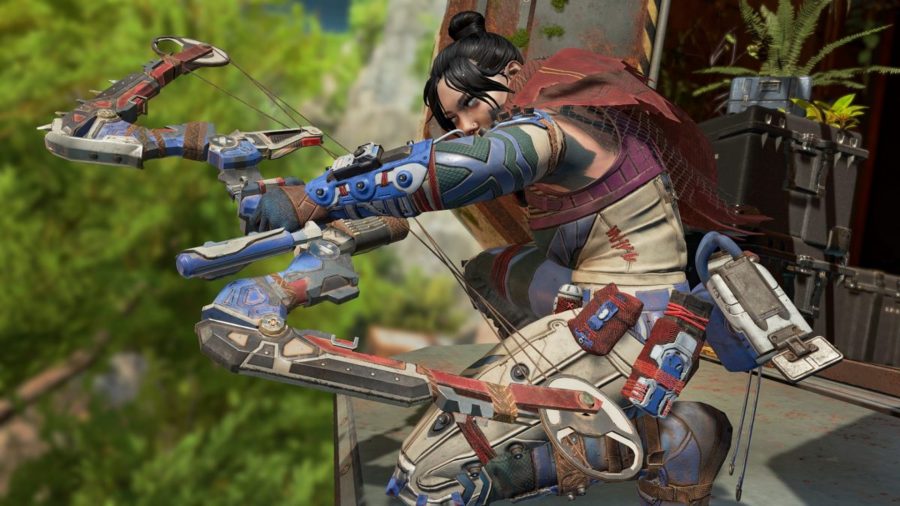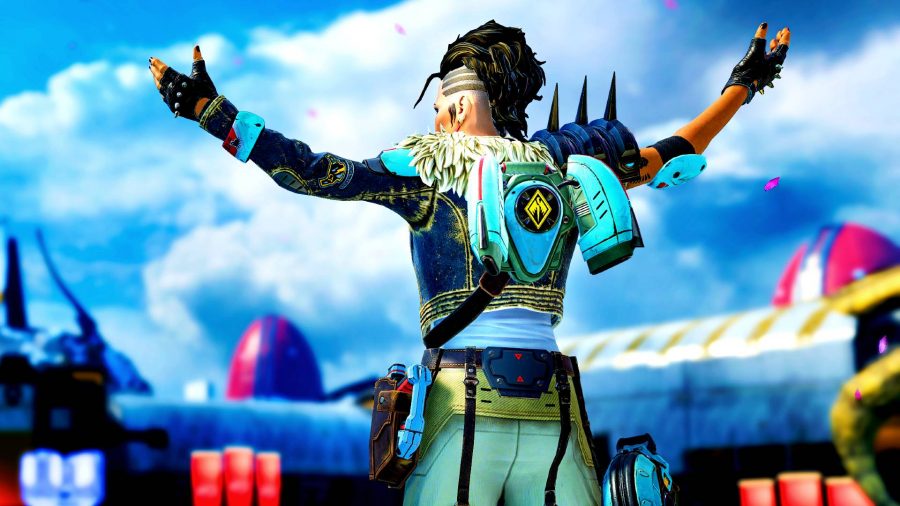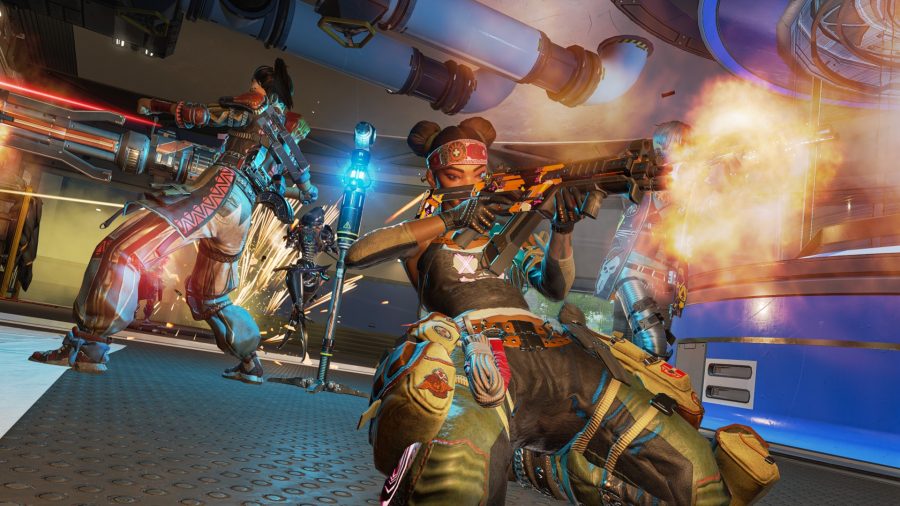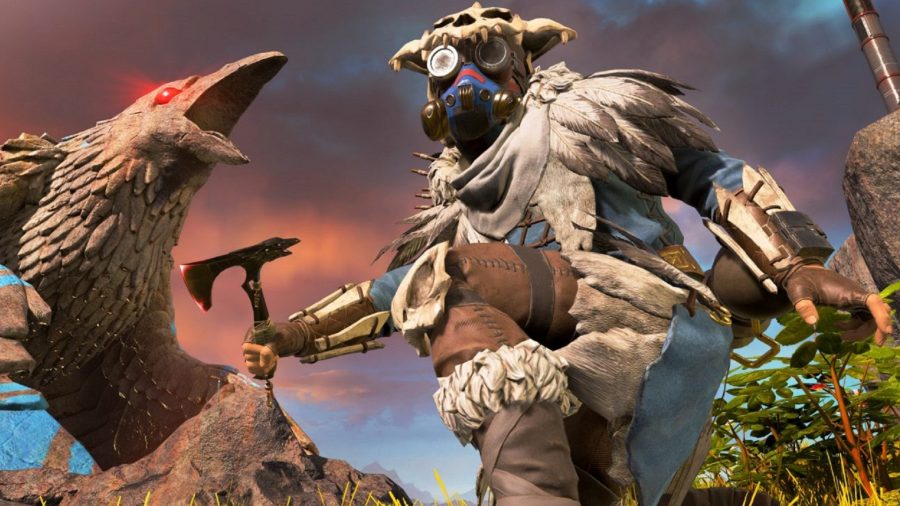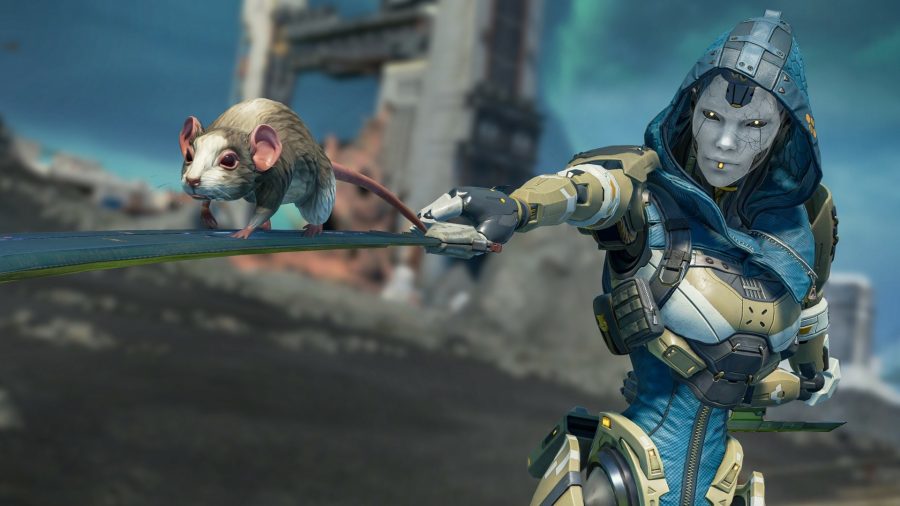Apex Legends has been on quite the journey since its surprise launch in early 2019. 20 legends, four main battle royale maps, several new gameplay experiences and modes, and so much more has been crammed into just over three years, resulting in Respawn’s game becoming one of the most popular competitive FPS games on the planet with millions of daily players.
To commemorate its achievements, look at its shortcomings, and also gaze ahead to the future of Apex Legends, The Loadout picked the brains of two people with plenty of insight on the game and its journey ahead: game director Steve Ferreira, and design director, Evan Nikolich.
In this lengthy interview, Ferreira and Nikolich discuss reaching that coveted 100 million players milestone, bringing Apex to mobile and next-gen consoles, high-profile departures at Respawn, and the future of the Titanfall universe and Apex Legends’ role within it.
The first three years
Like every game studio, Respawn had to dig deep when COVID-19 swept across the globe. When the pandemic began, Apex was still in its infancy, having only just celebrated its first birthday. Ferrerira describes the transition to working from home and developing Apex remotely as “demanding”, but says that by 2021 things were “smooth” in comparison. Despite this, it was far from plain sailing.
“Last year brought its own unique set of challenges in that many of our initial remote work solutions were intended to be temporary, but out of necessity, many of these have really evolved to become the new permanent way of working,” Ferrerira recalls. “Refactoring some of those short-term solutions into permanent ones isn’t something we anticipated two years ago, but it’s been a necessary and natural step.
“For example, how we playtest the game together as a team on a daily basis has been a tough nut to crack and has required regular iteration. Just working around the logistics of downloading the game multiple times a day across different regions of the world with inconsistent network speeds throws a wrench into something we used to take for granted when we were in the same building and using the same high speed internal network. Now after constant iteration this last year, it’s evolved into a new permanent model that will change the way we play the game as a team regardless of where we are in the future.”
As well as these technical hurdles, Ferreira also talks about the human speed bumps remote development created among the Respawn team. He admits it has been difficult to replicate the social interaction and creative collaboration found in a studio environment remotely, but Respawn has managed to continue innovating. “It may have made things harder, but it definitely didn’t stop us… the team is very proud of what we’ve accomplished,” he says defiantly.
In Apex’s lifetime, there have been plenty of highs and lows, so we asked Ferreira what he perceives to be the biggest achievement and challenge faced in the last three and a bit years. For achievements, it’ll come as no big surprise that Apex’s glistening player count is right at the top.
“It’s hard to pick one because there’s so much the team has accomplished and is excited about with Apex,” he says. “However, I think at the end of the day we all do this because we want to make games that everyone can enjoy, so I would say that crossing the 100 million player mark last year was a particularly memorable moment for us. Knowing that the game you love making and playing has reached that many people in the world is an amazing thing.”
As for Apex’s biggest challenge, Ferreira chooses the ongoing need to balance constant innovation and improvement with maintaining a healthy development team and avoiding burnout. “The wonderful thing about a live game [is] that we get to continue building and evolving the game everyday. It’s also easy to become our own worst enemies and try to do too much too fast. Pacing development based on what’s best for the health of the game and the team is something we work at every season.”
The here and now
While reflecting on Apex’s past is interesting, it’s worth remembering that it is in a commanding position in the present, with plenty of new innovations and expansions to bring even more players to the game.
One such expansion sees the game come to mobile devices with Apex Legends Mobile. While not fully launched, it is currently available in limited countries across Asia and South America, and it appears to be more than a humble mobile port. A recent blog post says that there will be plenty of “mobile-first” content, which may include maps, modes, and even legends.
“We are excited about the awesome work that the Apex Legends Mobile team has been doing and can’t wait to see the game in player’s hands,” says Nikolich. While he remains coy on whether the mobile version will attract more players than the PC and console version of the game, Nikolich seems to be relishing the moment. “I hope ultimately players are just excited about having more Apex to enjoy.”
As well as bringing the game to mobile, the console version of Apex Legends will be getting an upgrade soon thanks to a current-gen update for those on PS5 and Xbox Series XS. While most upgrades of this nature launch with all the bells and whistles from the get-go, Respawn will be doing things differently by rolling out individual features with each new season. Ferreira simply says this is “how we like to make games and a natural part of our development process”, and says current-gen upgrades will be treated in the same manner as other new additions like legends, maps, or balance changes.
Ferreira also seems to confirm that those on the PS5 will, at some point, have the unique benefit of full DualSense controller support.
“While I can’t confirm when we will see DualSense features come to Apex, I can say that yes, it’s one of the core features that really adds to the feel of the game and is something very core to all Respawn games,” he says. “Things that enhance the feel of our core gameplay is something we get excited about.”
It isn’t just with platforms that Respawn is branching out – it’s also working to bring new gameplay experiences to Apex Legends that go beyond its battle royale origins. The game already has Arenas firmly installed as a permanent mode, with its own rankings system too, and the most recent LTM, Control, went over well with fans – many of who want it to become a permanent mode as well.
“The Apex team is all about experimenting and trying new things,” says Nikolich. “That’s why we really enjoy creating and playing around with LTMs to bring variety to the player experience season over season. More than just bringing variety to the gameplay experience in Apex, LTMs also allow us to give players new ways to practise their skills and allow us to test out new mechanics for the core BR experience. For example, Evo Shields came from a previous LTM, and we loved the mechanic so much we brought it into the main BR experience. You can expect to see us continue playing with LTMs in Apex.”
The focus on new experiences, however, won’t come at the expense of the battle royale Apex made its name with. When asked if Apex could ever move away from being a battle royale-first game if interest in the genre were to dwindle, Ferreira says that Respawn will continue to “innovate and push people’s expectations of what a battle royale can be” to ensure it never dies out. It’s clear Respawn is making waves in the battle royale world with other developers bringing in elements of Apex Legends in some form or another to their games. “We aren’t trying to be anything other than Apex Legends,” Nikolich adds, “and we intend to keep pushing the boundaries and innovate.”
But the pair will have to innovate with an ever-changing team. Over the last four months, several high-profile figures such as Chad Grenier, Rodney Reece, and Dave Osei, among others, have left the team for pastures new. From the outside perspective, this might seem concerning – but Ferreira isn’t concerned.
“Change is healthy and constant, especially in the games industry,” he says. “We’ve always had members of our amazing team come and go over the years, so in that regard this isn’t anything new. We had people leave our team before Apex launched, when Apex launched, and over the last three years.
“However, we’ve also had amazing new people join the team along the whole way as well. New people means new ideas feeding into the same Respawn principles that created great games like Titanfall, Titanfall 2 and Apex. This is a healthy part of evolving and growing. This also maybe speaks to the cyclical nature of games that we see with teams across the industry with console generation cycles for example. Apex is more than one person or a few people; it’s the collective effort of the entire Apex team.”
Ferreira is as equally unconcerned about staff departures as he is about the new pedestal Apex has risen to in the eyes of publisher Electronic Arts. Apex Legends is now EA’s top FPS game, and its success was said to have helped “offset” the shortcomings of Battlefield 2042 – a game which, despite the series’ legacy, was a commercial failure.
But even here, Apex’s director is unflappable. You’d think the team would feel the pressure of becoming EA’s next golden goose, but no – Ferreira is defiant: “At the end of the day, we really don’t chase numbers or focus on competition – we just focus on making a game that we get excited to play as a team.”
The future of Apex Legends
While the first three years of Apex Legends have flown by, it’s time to look ahead to the future. We already know there will be shiny new optimisations for current-gen console players, a mobile version, and of course the continuation of new seasons, legends, maps, LTMs, and more – but what else is on the horizon?
“This year, we’re focused on continuing to bring new experience to Apex but we also want to help new players jump into Apex,” Ferreira says when we ask what he’d like to achieve in the near future. “This game can be a daunting experience for new players with our competitive environment and big community. So we want to find ways to encourage casual players to jump in and play Apex and take that next step in their competitive gaming experiences.”
Later in our conversation, Ferreira also mentions accessibility as an area he hopes to work on. “We want to continue to try and improve on and increase the accessibility of Apex as a competitive shooter. We hope that this will continue to inspire more players to compete.”
Ferreira also touches on something that fans have been desperate to learn more about for a long time now – the future of the Titanfall universe, and what Respawn intends to do with it. With talk of a proper Titanfall 3 sequel game being shut down on a few occasions last year, it looks, from the fans perspective, as if Apex Legends is now the primary vessel for Titanfall storytelling.
“Apex has always been an expansion and evolution of the Titanfall universe, so it makes sense that they are both still very much part of that same universe,” Ferreira responds when asked if this is the case. “The core gameplay mechanics, locations, and story are all intertwined and share the same DNA, so as a team it’s natural that we think of them as very much one and the same. Titanfall 2 offered a very different experience with the introduction of the single player campaign versus the multiplayer-focused experience in Titanfall. In the same way, Apex being a battle royale offers another very different expansion of that core Titanfall universe.
“As a team, we’re passionate about each of these types of gameplay experiences and are excited about the new ones we’re working on. Could we see a return to some of those experiences from Titanfall, Titanfall 2, or all together new ones that continue to expand the universe even further? Of course. But right now, we’re very excited and focused on our ideas for continuing to push and innovate the Apex experience.”
Read into that, and the rest of Respawn’s vague but open-ended communications around Titanfall, as you will. Exactly how Titanfall will live on isn’t specifically clear, but it seems as if Respawn is leaving the door open to a multitude of possibilities.
While we got a few glimpses into the future of Apex, it’s clear that Ferreira and the rest of Respawn are focused on the here and now – building a legacy for the years to come.
2022 is shaping up to be yet another milestone year for Apex Legends, and while some of the names who helped lay the foundations are gone, new blood, willing to push the boundaries further than ever before, have been brought in to usher in what might go down as a new age of Apex Legends.
